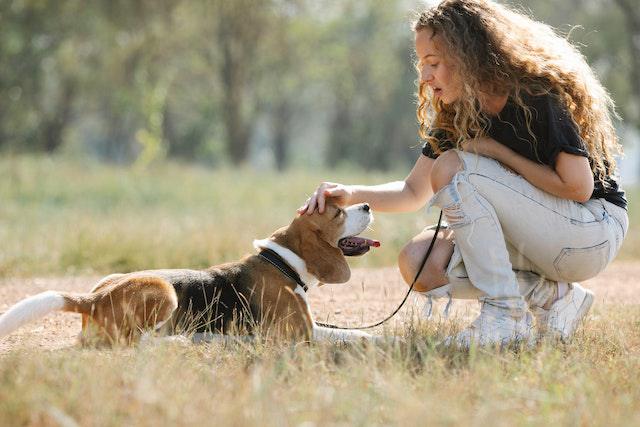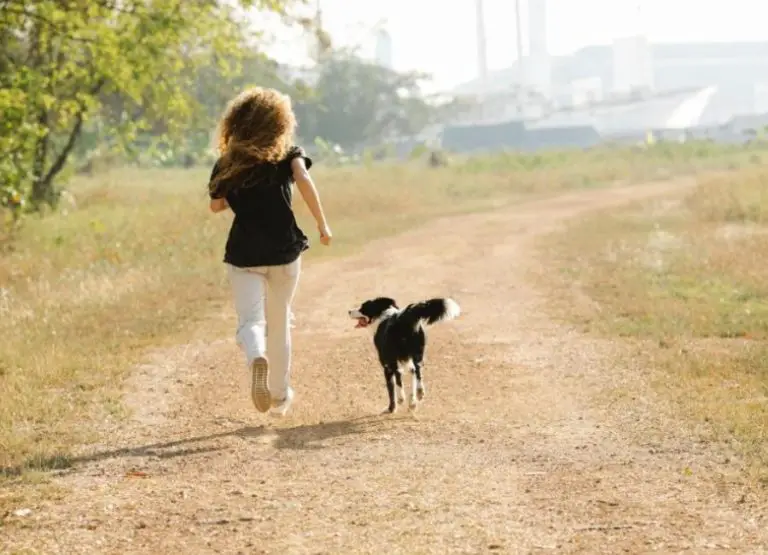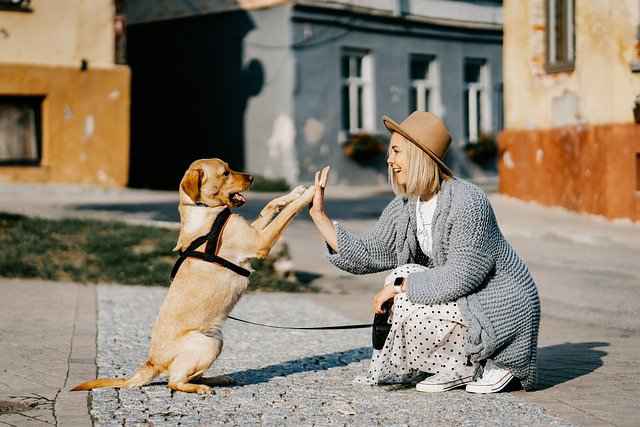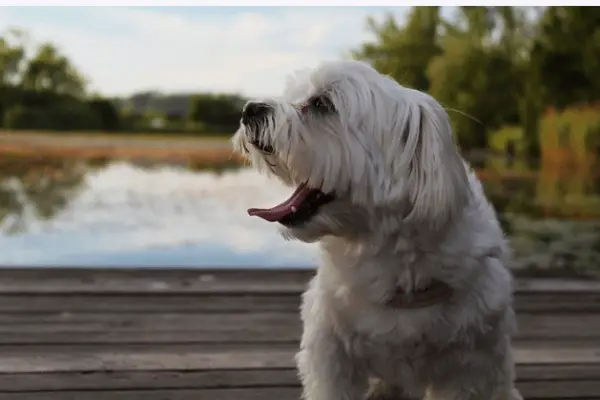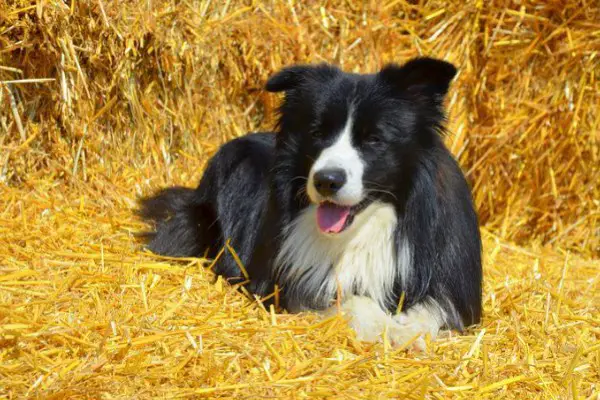Do Bichon Frise Bark A Lot: 8 Reasons They Bark & Helpful Tips
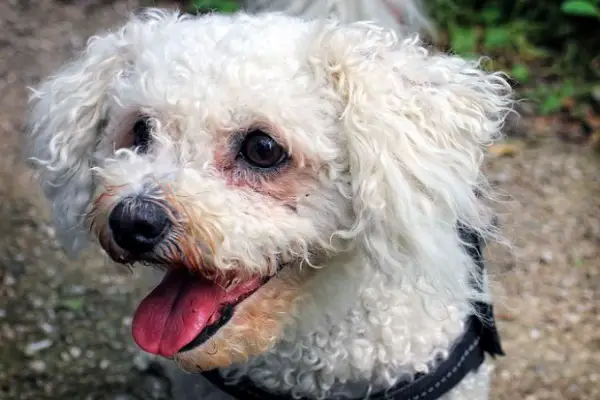
Since Bichon Frises are growing in popularity in modern times, people always ask do Bichon Frise bark a lot, because no one wants a barking pup.
Bichon Frise is a little boisterous canine that does not bark unnecessarily. Let’s look at some of the most prevalent reasons why a Bichon Frise could bark.
We’ll also look at some typical methods for controlling or preventing excessive barking in Bichon Frises, so sit tight and get ready to learn!
Let me swiftly respond to your query do Bichon Frise bark a lot, we’ll go through why they could be barking unnecessarily.
Do Bichon Frise Bark A Lot
Bichon Frise is known for being possessive, which causes them to bark at other dogs or humans they consider to be a threat. Excessive barking in Bichon Frise can be caused by a variety of factors, including fear, anxiety, and a lack of socialization.
Bichon Frise doesn’t bark just for the pleasure of barking; there has to be a reason behind it.
Why do Bichon Frise bark so much
The following are some of the most common reasons for Bichon Frise barking:
Your Bichon Frise may be constantly barking at humans, cats, other dogs, or pets as a result of inadequate or bad socialization.
Excessive barking and crying are common complaints among Bichon Frise owners, therefore you should start socializing your puppy immediately early.
You must train your Bichon Frise not to perceive other dogs or pets in his or her neighborhood as a threat if you want to lessen the quantity of barking.
To minimize excessive barking as a result of inadequate socialization, teach your Bichon Frise this from the time he or she is a puppy.
2. Protecting themselves
Dogs may bark at outsiders to keep people away from their owners, or they may bark at people instead of other dogs.
When approached by outsiders, a Bichon Frise may bark to alert its owner, just like dogs do to each other.
Bichon Frise is always on the search for new canine friends to play with. Dogs can’t stop themselves from barking at each other.
Strangers will prompt Bichon Frise to bark in order to alert the other dogs of their presence.
Their diminutive height constantly frightens them, causing them to bark endlessly. They believe it was a self-defense move.
3. A traumatic event flashback
In Bichon Frise, traumatic events are real, and they’re one of the most common causes of excessive barking.
As a result of earlier trauma, rescue dogs suffer from anxiety or post-traumatic stress disorder (PTSD), according to the AKC.
Any Bichon Frise who has been exposed to trauma in the past may develop behavioral issues such as barking.
Bichon Frise reared in an aggressive or harsh setting are more likely to have emotional issues.
They become fearful, aggressive, or even excessively bark as a conditioned self-protective response.
4. Separation anxiety effects
Separation anxiety is a condition in which a Bichon Frise feels anxious and develops behavioral difficulties after being removed from its owner for an extended amount of time.
Within minutes of their owners departing, Bichon Frise develops separation anxiety.
Even some causes of separation anxiety in dogs are known, it’s unclear why some dogs suffer from separation anxiety while others do not.
This is one of the most common problems that dog owners have, and it’s generally the result of a lack of basic training.
Separation anxiety, on the other hand, causes Bichon Frise to become aggressive and bark incessantly.
5. Fear
Fear is a typical reason for excessive barking in Bichon Frise, and it’s commonly associated with a socialization problem.
Bichon Frise is little canines that, if not properly socialized, are always afraid of objects or pets that are larger than them.
Some of the most common reasons for fear in Bichon Frise are as follows: The region was immersed in thunder, gunfire, fireworks, and a blanket of darkness.
All of this enrages a Bichon Frise, who will bark ceaselessly until the issue is remedied.
Try to socialize your Bichon Frise with a variety of people and sounds to keep him from barking excessively.
6. Seeking owners attention
When a dog, particularly a little breed like the Bichon Frise, craves attention from its owner, it may bark or whimper until the owner reacts.
It’s important to remember that they were designed to be companion dogs that spend most of their time with their owners.
As a result, they rely on their owners for everything, including love, food, water, and medical attention.
If you aren’t cautious, your cute little puppy will grow up to be a vicious beast who will bark, hack, and lunge at you.
When Bichon Frise has been accustomed to a routine, they should not begin barking excessively when they want help.
7. Unwanted strangers around
You may assume your Bichon Frise barks excessively if you live in a crowded city or neighborhood.
Bichon Frise aren’t the best guard dogs, but they are without a doubt among the best watchdogs.
You will be subjected to these barks on a regular basis if you do not properly teach and socialize your dog!
The unsocialized Bichon Frise would continue to bark at the mailman when he came. Until you introduce them on to the postman.
Even if they do not attack, Bichon Frise will warn their owners about strangers on a regular basis.
8. Out of frustration or depression
Various variables contribute to a Bichon Frise’s high degree of hostility and excessive barking when he is displeased.
Paying less attention than usual, ignoring the dog, disrupting the dog’s eating patterns, and so on can all cause unnecessary barking.
Maintain a joyful environment for your Bichon Frise at all times, as frustrated Bichon Frise are more inclined to perform unexpected things.
To cope with an annoyed Bichon Frise, you must first figure out what’s causing the problem and fix it as quickly as possible.
When the Bichon Frise wants your attention, don’t ignore them. Examine your Bichon Frise to see whether he or she is in any distress.
No matter how you see barking, it is a behavior problem in Bichon Frise and sometimes they may even bite when barking.
How to control Bichon Frise barking behavior
The following are some common strategies for teaching or regulating a Bichon Frise to stop barking excessively:
1. Never shout at a barking Bichon Frise
If you yell at a barking Bichon Frise, the dog will believe you’re amusing him. Never use your own chastisement to scold a bark.
While urging your Bichon Frise to come to a halt, speak quietly but firmly and at a constant volume. Teach your dog what the term “silent” means.
Despite being bright canines, Bichon Frise had difficulty comprehending the command “shut up.”
Instead, teach them the command “quiet” and congratulate them for being silent after hearing it.
2. Always Ignore any unwelcome barking
Screaming or yelling at your Bichon Frise to stop barking all the time sends the incorrect message, and your Bichon Frise will continue to bark.
The cornerstones of Bichon Frise training are tranquility, love, compassion, and trust. This is something that both you and your Bichon Frise should keep in mind.
If you remain cool when your Bichon Frise is barking excessively, he or she will stop barking.
When your Bichon Frise barks excessively, it’s never a good idea to shout at him; instead, try not to pay attention when he barks excessively.
Make it a terrible habit for your Bichon Frise to bark only when absolutely necessary and not when it isn’t.
3. Always provide mental stimulation
Boredom and a sedentary lifestyle cause Bichon Frise to bark a lot, so keep them occupied and they won’t bark.
A daily 10-minute walk is beneficial, but in hot weather, your dog may be able to burn off enough energy by staying home or playing a short-term extraction game.
Bichon Frise are high-energy dogs who, if not provided adequate mental stimulation, may bark and do things that aren’t necessary.
Consider a variety of toys to keep your Bichon Frise mentally stimulated.
4. Avoid separation anxiety
Getting a second pet may be the most effective technique to convince your Bichon Frise to stop barking because Bichon Frise relies on their owners for attention and enjoyment.
If you are frequently gone, you should get your Bichon Frise a second pet because they were designed to have a human companion.
While you’re gone, this will keep them occupied, which may help them cope with separation anxiety.
Because Bichon Frise are seldom bored and are unfazed by the presence of other dogs, consider getting a second companion pet.
5. Create and maintain a daily schedule
Maintaining a regular schedule for your Bichon Frise is an easy way to ensure that they get the most out of the training and course you’ve chosen for them.
Giving your Bichon Frise something to do at all times is essential to keeping him active on a daily basis.
On a daily level, stick to what works for you. It’s crucial to eat at the right times, play at the right times, sleep at the right times, and so on.
6. Avoid barking triggers
Objects that irritate your Bichon Frise may be kept away or introduced to them at any time.
If your Bichon Frise is afraid of the mailman, contact him and introduce him to your Bichon Frise.
As a result, your Bichon Frise will recognize the postman as a kind visitor and will be at ease in his presence.
Use the same procedure for anything else that can make your Bichon Frise react.

![How To Socialize a Beagle [9 Useful Hints] How To Socialize a Beagle](https://petcreeks.com/wp-content/uploads/2023/05/How-To-Socialize-a-Beagle-768x555.jpg)
